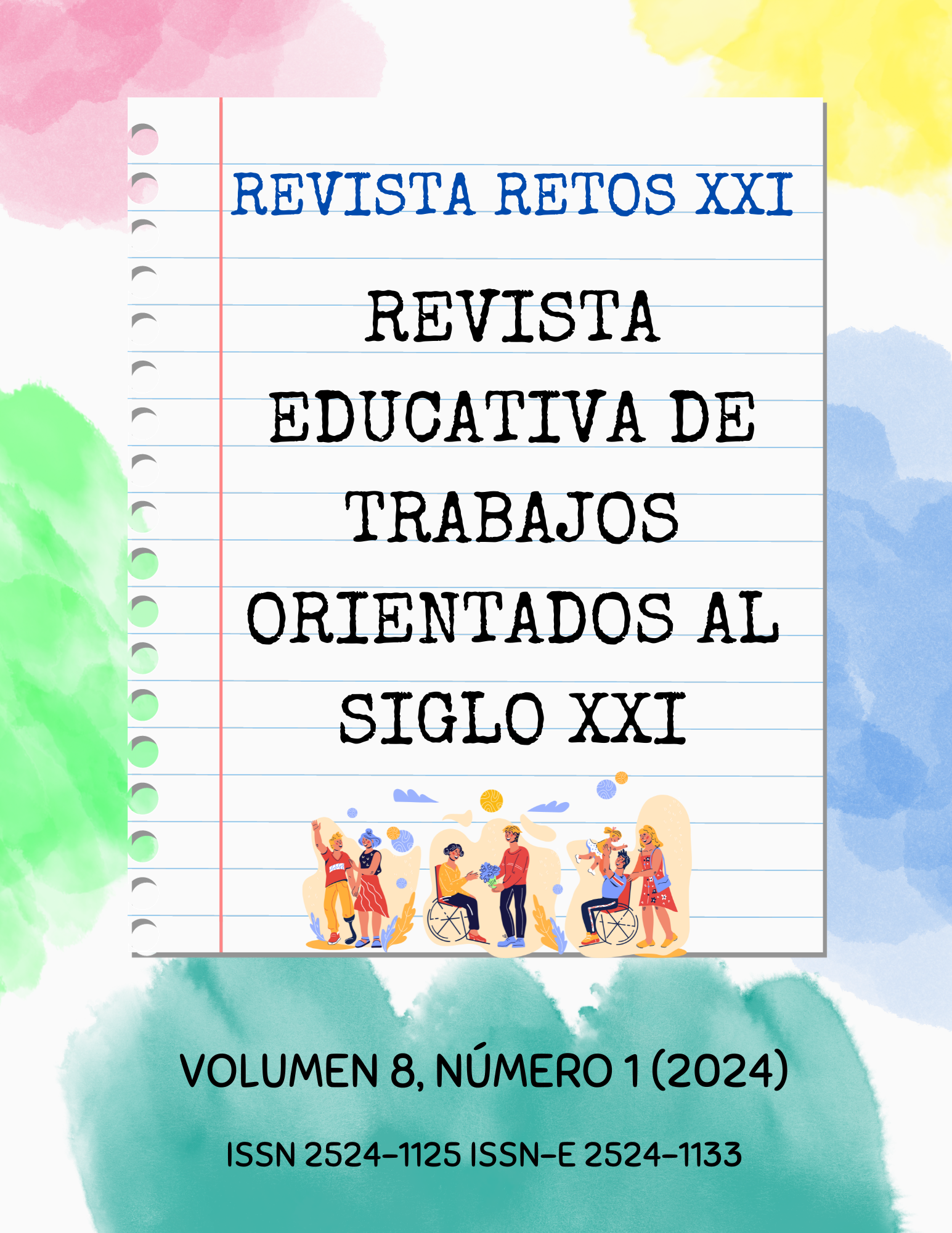La formación del profesional de la carrera Español-Literatura centrada en la investigación
DOI:
https://doi.org/10.30827/retosxxi.8.2024.29056Keywords:
superior education, the professional's formation, investigation, professional actingAbstract
The superior education should contribute to the integral formation of its professionals, offering tools from the initial formation so that, once graduate, they can be inserted in a demanding labor environment, more and more committed with the use of the science like vital road for the educational and social transformation. In that zeal, the active participation of the university students in student scientific groups constitutes a necessary space of human growth and professional. Of same way, the good conduction of the professors like investigators' example, it will allow to offer a better way of professional performance. The article approaches a cardinal problem of the Cuban and contemporary superior education, how to favor a better formation of its professionals that every time is more centered in the investigation, as road of permanent growth. Analysis-synthesis, induction-deduction, participant observation and analysis of the product of the activity were among the used methods. The proposal contributes to perfect the formative work of the new professional of the career Spanish-literature.
Downloads
References
Cué, J., Miranda, J., y Fernández, C. L. (2018). Los proyectos de carrera como mediadores del proceso de enseñanza-aprendizaje de la disciplina Formación laboral investigativa. Mendive, 16(3), 442-454. http://mendive.upr.edu.cu/index.php/MendiveUPR/article/view
Domínguez, Y., y Rojas, A. L. (2018). La práctica profesional como espacio para la formación investigativa del docente. Conrado, 14(65), 148-153. http://conrado.ucf.edu.cu/index.php/ Conrado.
Fierro, B. M. (2023). Informe Ejecutivo de la Cátedra de Lectura y Escritura del año 2023. Universidad de Matanzas.
Ministerio de Educación Superior (2016). Documento Base para el diseño de los planes de estudio E. MES
Ministerio de Educación Superior (2016). Plan de Estudio E. Carrera Licenciatura en Educación Español-Literatura. MES
Ministerio de Educación Superior (2022). Reglamento Organizativo del Proceso Docente y de Dirección del Trabajo Docente y Metodológico (Resolución 47/22). MES.
Pérez, C. I., y Hermida, N. (2014). Desde la carrera de Español- Literatura a la formación laboral investigativa: preguntas y respuestas. Conrado, 10(47), 11-17. http://conrado.ucf.edu.cu/.
Ponce, D. V., Jalón, E. J., Albarracín, L. O. y Baqu, L. K. (2021). La formación de profesionales basada en proyectos investigativos. Conrado, 17(80), 263-267. https://conrado.ucf.edu.cu/index.php/conrado/article/view/1842
UNESCO (2021). Informe de la Comisión Internacional sobre los Futuros de la Educación. Avances recientes. UNESCO.
Vera, G. y Benavides, V. (2020). La práctica pedagógica investigativa: un escenario de reflexión y acción desde la pedagogía por proyecto”. Revista de Investigación Transdisciplinaria en Educación, Empresa y Sociedad. https://doi.org/10.34893/itees.v4i4.353
Published
Versions
- 2024-01-07 (2)
- 2024-01-07 (1)
How to Cite
Issue
Section
License
Copyright (c) 2024 The Educational Journal of Works Aimed at the XXI century (XXI CHALLENGES)

This work is licensed under a Creative Commons Attribution-NonCommercial-ShareAlike 4.0 International License.












